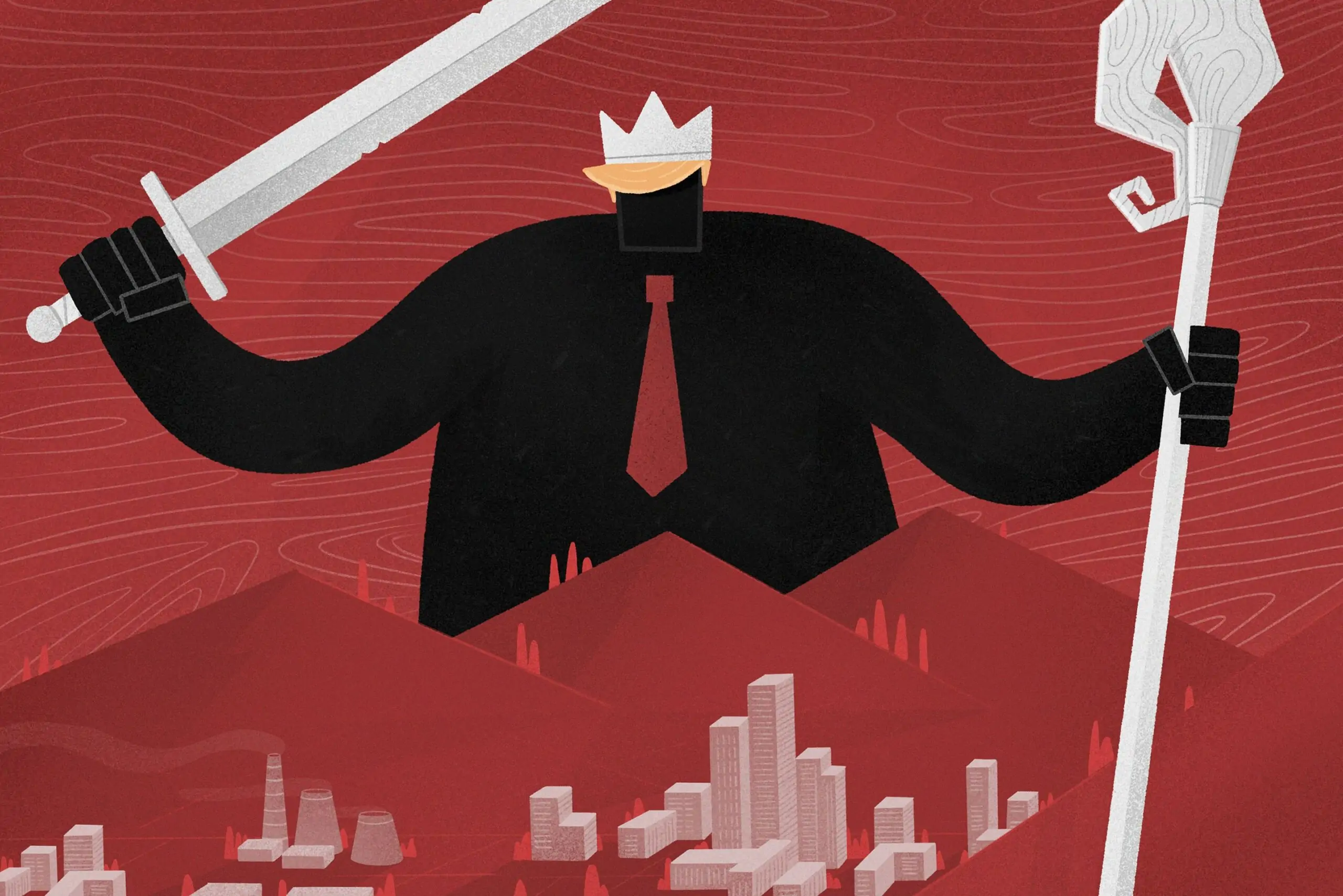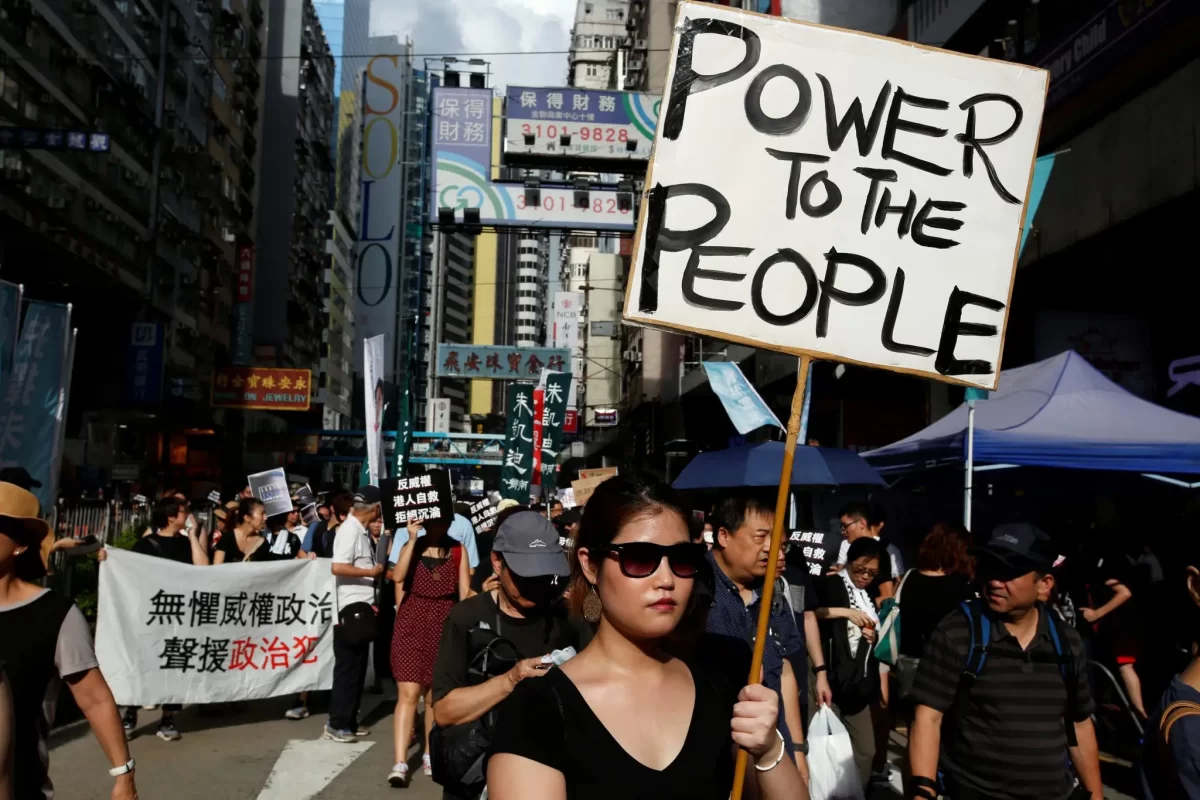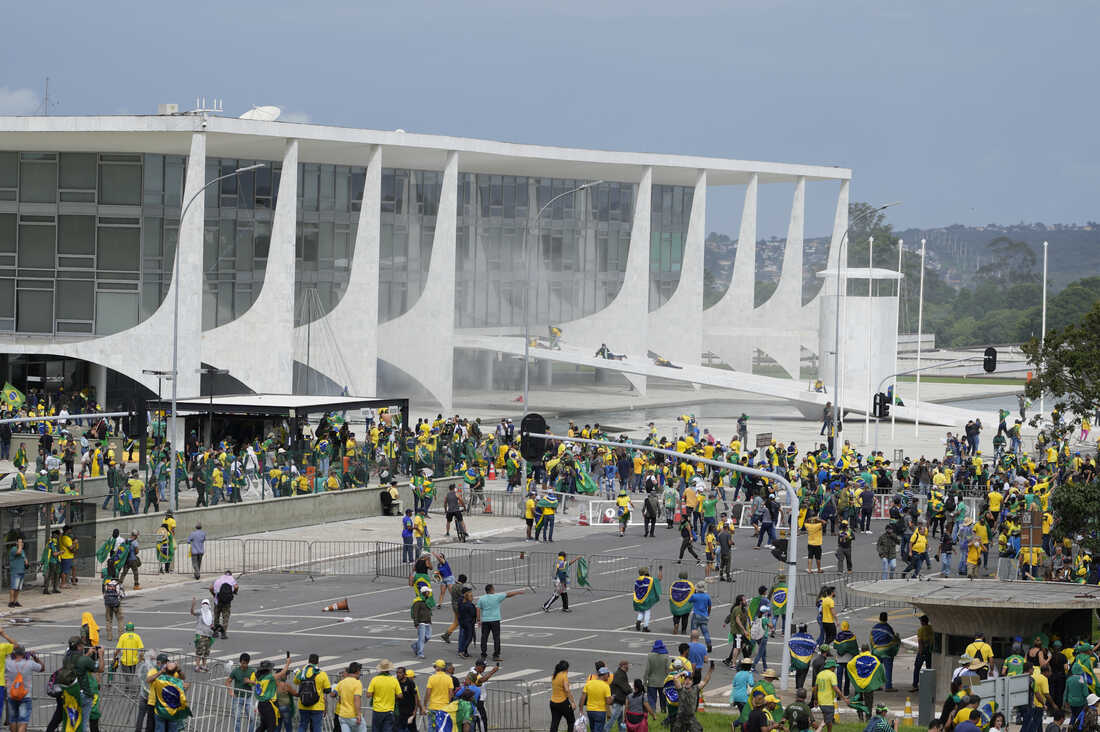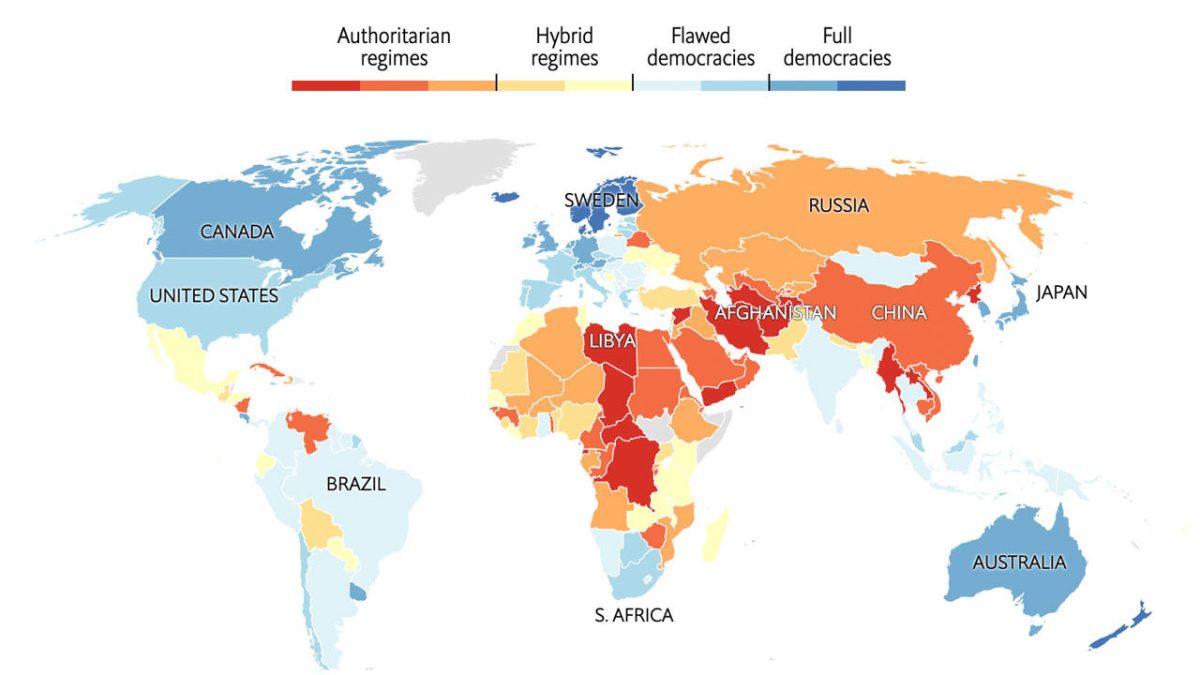The Rise of Authoritarianism
As the world’s largest continent, Asia is home to innumerable issues with regard to authoritarianism. In the Middle East, decades of instability and foreign meddling in regional politics has resulted in a conglomeration of fractious, often autocratic regimes. Iran, for example, has had a history of repressing social movements in favor of increased personal liberties and representative democracy; the recent protests over women’s rights after the death of Mahsa Amini in Iranian police custody have been one such example. And, on the opposite side of the Middle Eastern political axis, Saudi Arabia, Iran’s chief rival in the region, sports an outright monarchy. This close partner of the United States has also been criticized by major human rights organizations, including Amnesty International, for violations of the personal liberties of its citizens. Another major historical United States ally and NATO member-state, the Republic of Turkiye, having long clung heavily to an ultra-secular representative republican government, has shown increasing symptoms of an electoral autocracy, as President Erdogan has engaged in a campaign of repressing politically dissident discourse and reporting in the country, including the shutdown of press outlets and social media along with the arbitrary arrests of academicians, government officials, activists and journalists (Turkiye currently jails the largest number of journalists in the world).
In Northern Asia, the Russian Federation is another example of a representative government headed down the wayward path, with Russian President Vladimir Putin taking steps to curtail political and social freedoms while increasing the scope of his personal power and authority through alterations to the country’s constitution. Russia’s invasion of western neighbor Ukraine in 2022 has drawn ire and condemnation from all over the world, and officials in the United States, Great Britain and European Union have drawn parallels between Putin’s actions and a broader, global struggle between democratic institutions and authoritarian regimes.
In East Asia, the world’s newest superpower, China, has a long history of autocratic rule. Possessing a single party system of government, China has forcibly repressed movements for increased representation or autonomy of its people, most notably in the 1989 Tiananmen Square protests and the 2019-20 Hong Kong protests. China has also been condemned by major international human rights organizations for its violations of human rights – the country’s policies and actions against its ethnic Uyghur population remain a prime example. Concerns have also been raised by pro-democracy organizations like Human Rights Watch over the election of Chinese President Xi Jinping to an extraordinary third term in office, consolidating power in an individual in a situation paralleling that of Russia and Putin.
In Southeast Asia, the country of Myanmar has long been a hotbed of human rights issues. The military of the country has engaged in what the United States has deemed a genocide against its ethnic, Muslim Rohingya population. Furthermore, that same military ousted the democratically elected government of the country in 2021, sparking an internal conflict and giving way to yet more fears of government repression.
Meanwhile, the economic hub of Singapore has maintained a one-party system for decades, and undertaken elections which disadvantage any potential opposition to this system, according to the ASEAN Parliamentarians for Human Rights.
Much more could be said. Much more should be said. But one reality is set in stone: authoritarianism and autocratic sentiment are both maintained and on the rise in Asia.
Authoritarians and tyrannical governments they create are a detriment to their society and the societies their ideas spread to.
This has been no different in Latin America. According to Álvaro Piaggio and Luciana Talamas of the Human Rights Foundation, Nicaragua, Venezuela, Bolivia, El Salvador, and Honduras have all moved toward authoritarianism in recent years. In addition, Latin America has seen 42% of its countries experiencing decreases in the level of liberties given to their citizens according to Dejusticia in 2022. Disturbingly, Dejusticia also reports that human rights as well as activists are under attack in these authoritarian nations in that 68% of murders of human rights activists in the world are in Latin America. This also manifests itself in cracking down on dissent, cracking down on the LGBTQ+ community and other minority groups and reducing the number of refugees in their nation.
This isn’t the first time Latin America has been under authoritarian threat. From Leopoldo Galtieri of Argentina to Fidel Castro of Cuba, all the way up to more recent examples like Jair Bolsonaro of Brazil Latin America, like the rest of the world, has struggled to fend of Authoritarian governments. However, despite the prevalence of authoritarianism in Latin America, the people in the nations affected have not let their countries go quietly. While some groups are more successful than others and have to use less force, oppressed people find a way of fighting back. For example, Brazil voted out Jair Bolsonaro in August of 2022. Unfortunately, there was an attack on the Brazilian Congress after, similar to January 6 (although it occurred on January 8) in America, but also like in America democracy prevailed. As a result of that attack and other issues surrounding Bolsonaro’s presidency, he was banned from running again until 2030. That does not mean everything is perfect in Brazil, but it is a step in the right direction.
A less positive example is what is currently happening and what has always gone on in Cuba. According to the Human Rights Foundation, the penalty for “associating with foreign organizations or individuals unauthorized by the government” is 10 to 30 years in prison according to a new law. From January to August of 2022, 640 people were arrested due to the crackdown on dissent and 115,000 left Cuba in that time period. That’s not the only place where people are fleeing en masse. In 2022, over 1,000,000 people left Venezuela, partly due to the issues they are having with their authoritarian government. Both historically and currently, Latin America has struggled with authoritarianism. In 2023, political unrest in Panama, Ecuador, Peru, Brazil and Argentina occurred.
Importantly, not all of this unrest is due to authoritarianism. However, when there is mass unrest in place authoritarianism at times fills the vacuum. Not to say that this will definitely happen in those areas, but it is something to look out for. At any rate, authoritarianism is detrimental to the government, people and democratic health of a nation, but it is on the rise. However, for every despot there are a much larger group of people who bravely fight against them, and this is equally as true in Latin America as it is in the rest of the world.
The presidency of Donald Trump truly altered the dynamics of the Republican party in a shockingly short time frame. Trump dominated in the 2016 election cycle by abandoning traditional rhetoric in favor of outspoken extremism. His image stood in stark contrast to many of the career politicians on the debate stage, with many Americans entertained and interested by the new image he brought to the political scene. On the campaign trail, Trump famously labeled immigrants at the southern border as “rapists” and “criminals”. He also promised to stop Muslim individuals from entering the US upon stepping into office. These statements served to validate and popularize the opinions of far-right groups like the Ku Klux Klan and the Proud Boys.
Trump’s slogan in and of itself (Make America Great Again) promotes an idealized version of American history commonly pushed by far-right individuals. For when was America truly a great society for all members of its citizenry. For the past represents an even darker time for many of the marginalized groups throughout our nation.
As Trump assumed office, the process of tolerance for alt-right viewpoints only continued. Trump continued to use his post as president as an opportunity to express controversial viewpoints. As these statements were repeated over and over again by news outlets, the American public became desensitized to hatred and extremists views, making terrifying developments for minority groups seem almost normal for the day-to-day lives of Americans.
This acceptance of far-right ideology came to a head early on in Trump’s presidency, after the Unite the Right rally in Charlottesville. As protestors at the rally came to unify white supremacist causes and oppose the removal of a Robert E. Lee statue, counter-protestors organized to stand against the hatred in the city. Tensions soon climaxed with protests turning into violent altercations. A white supremacist even drove their car through a crowd of counter-protestors, resulting in the death of one individual as well as 35 injured individuals. Despite the fact that the rally was expressly organized by white supremacist groups, Trump stated that there were “very fine people on both sides” and partially blamed the counter-protestors for the violence that occurred in Charlottesville.
As time went on, many extreme supporters of President Trump seemed to only take into account information that Trump deemed fit, while ignoring other opinions and sources of media. Even after Trump’s apparent defeat in the 2020 presidential election, Trump capitalized on his cult-like control over extremists to claim that the election had been rigged against him.
On January 6th, 2021, protestors in Washington DC surrounded Congress. Chants and marches soon turned to acts of destruction. Insurrectionists stormed through the building, searching for Democratic leaders while brandishing weapons.
Anyone watching the events live on television was met with a feeling of utter surrealness, as they witnessed the physical representation of our nation’s democracy uprooted by a violent herd of brainwashed individuals. But though this event seemed almost unimaginable to viewers, the seeds had been laid years in advance. The seeds had been laid and tended to by a president who purposely used his power and authority to manipulate the more extreme members of his constituency.
Even today, as former president Trump faces four separate indictments, many members of his party still stand strong in support of him. Trump has continued to realize he can use his authority to convince his most loyal followers of anything, including that every aspect of our nation’s government and legal system is focused on his downfall.
Watch Big Think’s take on authoritarian regimes, as host Timothy Snyder, Professor of History at Yale University explains the factors and development that lead to the rise of such regimes.
Authoritarianism is grounded around the idea that authority can be used to compel voluntary obedience without question. It is a product of many clashing nineteenth-century beliefs. It pushes to foster a government — a regime — where power is vested with the government’s beliefs and not the people’s. At its core, authoritarianism is a device used to gut democracy and shape a system of unquestioned power over those who are ruled over. Nonetheless, numerous European countries have pushed for this rule in recent years. These changes are reflected in different facets of the new wave of European authoritarianism, such as in countries like Hungary, Russia, and Turkey. All three countries exhibit authoritarian tendencies and are often synonymous with modern-day authoritarianism. They are prime examples of what a modern-day authoritarian regime encapsulates, and how it has a severe impact on the nation’s growth and development.
Hungary is a prime example of the steady growth in authoritarianism across Europe. In 2010, many in Hungary saw a drastic change in their political sphere, with the introduction of Prime Minister Viktor Orban. Orban, from the start of his campaign, made it clear that he planned to change the policy on a massive scale. When he was inaugurated, Orban changed the Hungarian Constitution several times, to carry out what he called his “vision.”. Many political scientists have claimed that Orban has spread anti-democratic rhetoric through acts such as the one mentioned above. People such as Lydia Gall, a researcher for Human Rights Watch, claim that Orban rules with, “draconian policies, [and has] criminalized basic democratic activity by civil society organizations,” and have therefore claimed that he is working to deconstruct the core values of Democracy within Hungary. His policies have been shown to undermine progressive policy and push adherence toward traditional ways of thinking. An example of such is the “pro-family” policies produced by Orban, which reinforce traditional gender roles, and reduce women to their reproductive qualities. In addition, Orban produced his collection of legislation, known as the “Stop Soros” acts, which worked to target organizations aiding migrants. Orban’s way of governing has drifted Hungary into a new wave of authoritarianism, where those who do not adhere their behavior and identity to the laws produced by Orban’s administration are subject to the will of the law.
Similarly, Russia has a maturing authoritarian government that is constantly being molded by the circumstances of Russia itself. During Vladimir Putin’s regime, before the current prime minister Mikhail Mishustin, a wash of what many considered “tyranny” was upon Russia. Putin had an iron grip on the nation and was known to have complete control over the media and press. Oftentimes, Putin made addresses to call for a complete cleansing of society, wanting complete obedience from those within Russia. He created a system where any of the Russian elite benefitted from the immense centralized power structure in Russia, making class-based movement virtually impossible. Putin intentionally structured the Russian democracy to favor policy shaped by the elite. Previous Soviet-funded institutions have become centralized hubs for the elite to maintain complete political control over Russia. The Russian legislature system has been dominated by elitist factions who have developed a system of political networking, able to assume complete control over certain areas of policy. Yet, by far the biggest display of authoritarianism is the crackdown on those who speak out against his way of ruling in Russia. From Putin’s influence, a silent majority has developed. The majority in Russia are too afraid to speak out and end up enforcing an unwritten social contract, submitting complete control to Russia in exchange for basic well-being — which is in itself a lie. Those who refuse to submit to this contract face persecution and cruel punishment from every source of authority — except the state itself, which refuses to get involved — but also refuses to stop such torture from occurring. The environment in Russia has become one of authoritarianism in full. Even with the resignation of Vladimir Putin, an elite class still dominates Russia and continues to hold control over all who remain in the public sphere.
Across the continent, Turkey exhibits deep-rooted authoritarian tendencies. What once was a democracy imbued with principles of equality and economic achievement has become a center for brewing authoritarianism. This stems from President Recep Tayyip Erdoğan’s consolidation of power over Turkey through his political party, the AKP (Justice and Development Party) which had an agenda of promoting a liberal and pro-European version of conservatism. The party aimed to achieve all of the above under the guise of making the country more democratic. However, as the party faced its third re-election in 2015, a shift of values occurred. During the 2015 election, the AKP failed to gain enough votes and thus did not make re-election. As a result of this, the party switched to more nationalistic tendencies, beginning to work with other smaller nationalist parties in order to create a despotic regime over Turkey. When they regained control of power, they unleashed a crackdown on those who dissented from the standard expected from the government. Under Erdoğan’s leadership, there has been a noticeable crackdown on opposition voices, including journalists, activists, and academics. Many people who criticize the government have been arrested or faced legal action, leading to a climate of fear and self-censorship. The government has also taken control of media outlets, making it difficult for alternative viewpoints to be heard. This, inevitably, led to the coup in 2016 which was an exemplary showcase of how authoritarian regimes react to dissent. The coup against, Erdogan’s leadership occurred as a result of nationwide frustration towards the limiting legislation and policy being placed on Turkish citizens. There were tensions between parties, which were reflective of more intense divisions within Turkish society over the country’s direction and identity. Following the coup, the government initiated a large-scale purge of civil servants, educators, and military personnel, accusing many of them of being linked to the coup plotters. Turkey has since moved away from what the country once geared towards, which was to be a democratic, moderate government. Instead, it has adopted a far more authoritarian and nationalistic viewpoint that plagues the current ongoings in Turkey as recent as the modern day.
In conclusion, the awakening of a reimagined authoritarian resurgence in Europe has given cause for concern to the countries that reside in Europe. As Europe grapples with the resurgence of this political ideology, the international landscape of the world remains vigilant in safeguarding the fundamental values of democracy and human rights. While the countries listed above, and many others like them, have signs of fully assimilated authoritarian regimes, that is not to say that there are efforts to reform democracy within these nations. Many still work to preserve democratic ideals as a collective effort to return these nations to a stable democracy. However, it is the belief of many political scientists that the only way to do this is through a concentrated approach, aimed at confronting the growing threat of total totalitarianism across Europe. While countries such as Russia, Hungary, and Turkey all have remaining ties to authoritarianism, there are strong efforts within all three countries to reach the democratic standard of humanitarianism and to reshape a government that serves the interests of the people.
The Economist Intelligence Unit, the research arm of the acclaimed Economist magazine publishes an annual analysis of the world from the lens of democracy and authoritarianism. According to their Economist Democracy Index, every country receives a score based on electoral process and pluralism, civil liberties, functioning of government, political participation and political culture. Click the attached image for The Economist’s 2022 global democracy index.
Please click on the box below to access Eastside’s quiz on authoritarian regimes!










